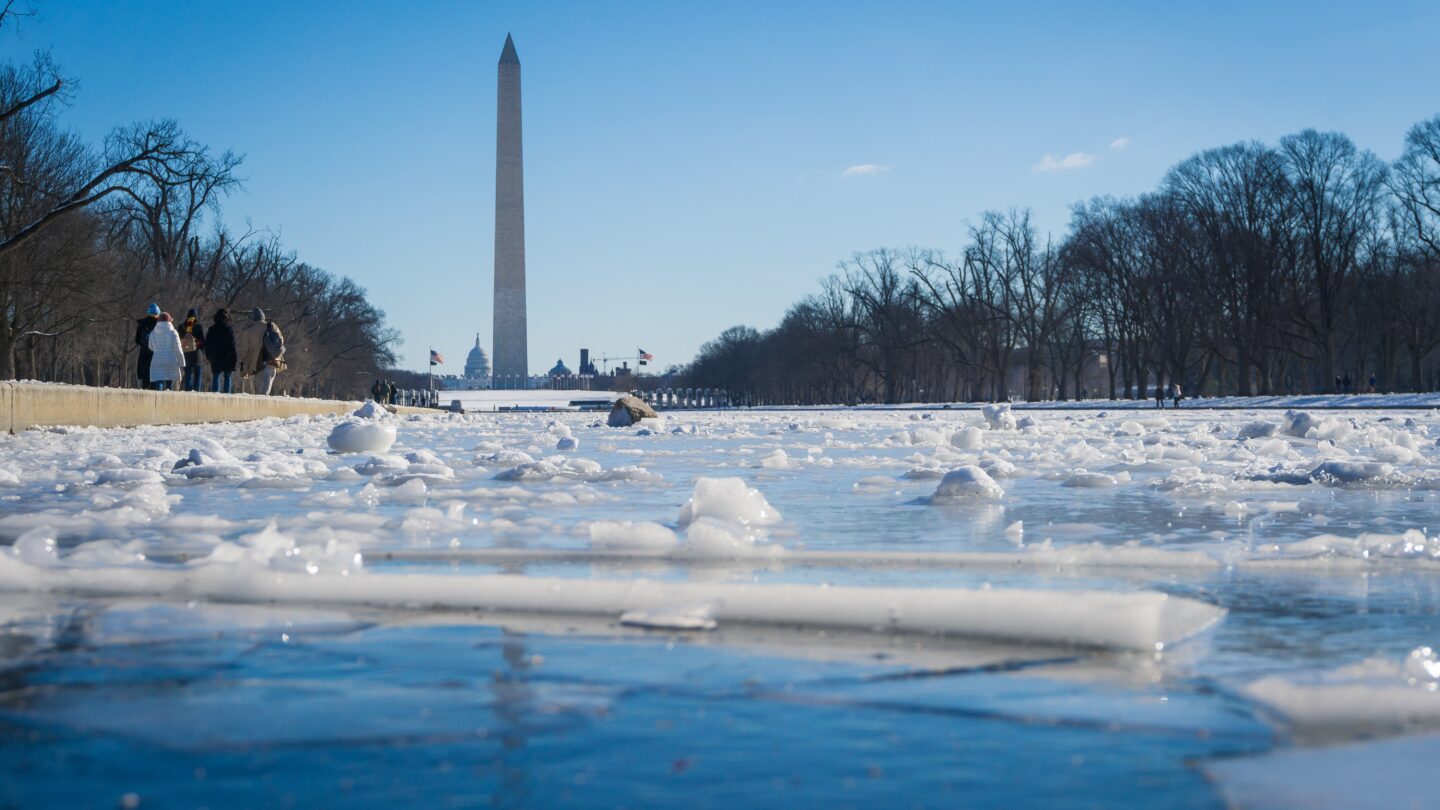Natural rights libertarianism provides the most powerful moral objection to government action to mitigate climate change via carbon mitigation policies (CMPs) like carbon taxes. Natural rights libertarians embrace a principle of self-ownership along with principles of property acquisition, transfer, and rectification. These rights generate a set of natural rights to private property and the right to private property is taken to determine that all taxation, or any taxation beyond what is required to sustain a minimal state, is unjust. On such a view, it seems obvious that a carbon tax is an illegitimate and unjust violation of natural rights.
Or is it obvious? In this piece, my goal is two-fold. First, I would like to show that even natural rights libertarians should support a carbon mitigation policy under certain conditions. Second, I will suggest that these conditions are likely met in the real world. This piece is not meant as a “gotcha” meant to show that natural rights libertarianism is implausible or silly. I have respect for the view. My aim is instead to try to determine whether even the most ardent opponents of carbon mitigation policies like carbon taxes actually have a strong footing to oppose them.
I do this in part because libertarian hostility to taxation leads them to think, falsely, that the empirical conditions that could justify a carbon tax are not met. This hostility, therefore, leads libertarians to hold incorrect empirical beliefs, which creates a concern about climate science denialism. Libertarians pride themselves on following scientific reasoning wherever it leads, and some confusion about how libertarianism approaches carbon emissions is inadvertently leading to hostility toward policies that would actually help to preserve justice as natural rights libertarians understand it.
My broader aim is to help to preserve and renew the institutions of the open society, which means that all political groups must be committed to the public use of science to formulate just and effective public policies. So this essay is meant to contribute to a broader effort that asks that we inform our public policy preferences with an objective and fair reading of scientific evidence.
When Natural Rights Libertarians Should Support a Carbon Tax
Here are the conditions under which natural rights libertarians should support a carbon mitigation policy.*
(1) The actions of human beings generate carbon emissions significant enough to pose a non-trivial risk of violating property rights (in one’s body or external objects) of persons whom the state has a duty to protect.
(2) A carbon mitigation policy (CMP) will provide an effective protection against the risk.
(3) The CMP will not in itself violate property rights, or take an excessive risk of violating them, because it will generally be targeted at persons or groups that generate problematic carbon emissions (and persons don’t have rights against restraints upon their rights-violating actions), where:
a. The CMP coerces the smallest number of people sufficient to deter the emissions.
b. The CMP is the least coercive means of deterring the emissions.
(4) No non-governmental, non-rights violating alternative to CMP is socially or politically feasible.
Natural rights libertarians should support a CMP under these conditions. First, despite what their critics often believe, libertarians are deeply morally committed to ensuring that certain kinds of negative externalities are internalized, in particular if those negative externalities lead to the destruction or degradation of legitimate property holdings. No libertarian thinks that John can dump radioactive waste into Reba’s legitimately owned water supply.
A complication with condition 1 is that no one person or small group produces enough carbon emissions to pose a non-trivial risk to legitimate property holdings. But this did not prevent Murray Rothbard from arguing that those who collectively produce threatening degrees of pollution cannot be held accountable for violating property rights. Rothbard argued that these threats should be handled through class-action lawsuits. But appeals to Rothbard aside, it’s clear enough that libertarians should be prepared to hold large, diffuse collectives accountable for property damages. And sufficient carbon emissions will produce property damages.
Condition 2 is critical because the coercion involved in imposing a CMP can only be justified if it actually protects property rights. Condition 3 is critical because natural rights libertarians are not consequentialists. You cannot justify violating John’s property rights in order to protect Reba’s property rights more effectively. So any justified CMP has to penalize the carbon emitters alone, or at least make an honest and reasonable effort in doing so. And that means satisfying 3a and 3b as best as one can, by ensuring that the CMP is no more coercive than it needs to be and apply to no more persons than it needs to.
Condition 4 is critical because if there is a non-coercive, non-governmental solution to a negative externality, the natural rights libertarian will hold that this solution is morally superior to a CMP. But if no solution is feasible, socially or politically, at present or in the near future, then libertarians should support a CMP in order to protect property rights and so to do justice.
But how can natural rights libertarians, especially anarchist natural rights libertarians, support governmental action to do anything? Well, in lieu of abolishing the state, presumably libertarians want government to protect people from being killed or stolen from, and so they will insist that states be as just as possible. So if justice requires protecting people from negative externalities, then states should act to protect people from negative externalities.
Climate Change Risks Property Rights Violations
This theoretical discussion might be nice, but do we have good reason to think that these four conditions are met in the real world?
Begin with condition 1. Climate scientists agree that human beings are creating a rise in global temperatures by emitting large amounts of carbon. And they also agree that these emissions will probably cause a number of ecological and meteorological changes, such as a rise in ocean levels, the destruction of sea life through ocean acidification, and a non-trivial, but quite low risk of several catastrophic events. Given this enormous consensus, it is fair to predict that high carbon emissions will undermine the legitimate property holdings of many people, at least those who live on coastlines – perhaps hundreds of millions of people. Rising temperatures will also cause all sorts of other property changes and damages (and yes, it will also cause improvements for some people), but there is a predictable direct aggression by carbon emitters against coastal property holders caused by rising sea levels.
Now, many libertarians are lukewarmers – they believe in human caused climate change, but they don’t think the change will be so bad that we should pay the economic costs of a CMP, which I admit will be considerable. I was once a pretty convinced lukewarmer, but I became convinced of my error by a very simple argument.
Suppose that the lukewarmers are probably right, such that there’s a, say, 90% chance that carbon emissions will cause only modest changes that different societies can accommodate fairly easily. And then suppose there’s a 10% chance that basically everyone else who works on climate change policy is correct, and that the changes will be considerable and harmful. The expected utility calculation strongly suggests that we should choose a CMP as a principle of rational insurance: it makes sense to pay now to insure against a small risk of a large cost. So even if Matt Ridley is probably right, there is a decent chance, if not a large chance, that he is wrong. And given that he might be wrong, we should probably insure for this fact.
When I presented this argument on Facebook, at least one prominent libertarian intellectual suggested that there might also be a non-trivially low chance of a catastrophic or severe threat to property rights due to a CMP, and this risk should be factored in. But as far as I can tell, there’s no scientific basis thinking such a risk exists. So I’m discounting it.
The Effectiveness of a Carbon Mitigation Policy
I think it’s reasonably clear that there are proposed carbon mitigation policies that can effectively protect against the risk of property rights violations posed by carbon emissions. A carbon tax or a cap-and-trade scheme could disincentivize carbon emissions in a rather straightforward way. And the revenues from paying the tax or purchasing permits from the government could be used to subsidize renewable energy or to pay for climate adaptation.
But, of course, just because a carbon tax, etc. could provide an effective protection, should we expect it to given the governments we actually have? Obviously here natural rights libertarians are bound to be skeptical that government policy will actually discourage carbon emissions. But remember that the CMP is meant to fulfill a principle of justice – the protection of the property of persons whose property is at risk due to carbon emissions. So we should be hesitant to throw up our hands and say that CMPs will never work. We should do what we can to ensure that they are effective in order to protect the person and property of others.
Second, there’s no particular reason to expect that a carbon tax is infeasible or that it won’t disincentivize carbon emissions. In fact, given how much a carbon tax would harm many companies, they’ll face great incentive to figure out how to make their products and provide their services with fewer carbon emissions. And since markets are pretty smart, I wonder if we’ll need a CMP for very long.
So I fully acknowledge that a CMP will be imperfect. But the mere fact that it will be imperfect doesn’t mean we should forgo our libertarian duty to support policies that protect property rights, a duty we have even if the costs of protection are large.
Will the CMP Violate Property Rights?
The nice thing about proposed CMPs is that they target the persons and groups who pose a risk to property rights – the carbon emitters. No one has a right to emit carbon into the atmosphere in any sizeable quantity given that it imposes a negative externality on the property of others. On that libertarians can agree. And since the CMP penalizes directly those who engage in an activity that usually risks rights violations, the tax is not really “theft” in any sense of the term. It’s a penalty against engaging in an activity not protected by libertarian rights.
Of course, the CMP has to impose no greater burden on people, and on no more people, than is required to prevent the rights violation. And it is a virtual certainty that the CMP will be either too stringent or too lax. But that again is not a reason to not have a CMP, any more than the fact that the police are usually too stringent or too lax is a reason not to have them stop thieves and killers.
Are There Alternatives?
I will take it for granted that the Rothbardian class-action lawsuit proposal is socially and politically infeasible. Not only would the transaction costs of the lawsuit be absurdly high for such a national and global phenomenon, but the proposal is simply so far outside the Overton Window that few people have even imagined what some libertarians have proposed.
However, there is an alternative to a CMP: geo-engineering, such as cloud-seeding with sulfuric compounds, diamond dust, or calcium carbonate, which can prevent rising sea levels by reflecting more sunlight from the Earth. These solutions are in principle far less economically costly than any proposed CMP and are much easier to coordinate (the US could do enough cloud seeding for the whole world all by itself). Moreover, while many climate change activists don’t take geo-engineering seriously and few support it, it is not obviously infeasible that the way in which Rothbardian mass-class-action lawsuits are. Most importantly, geo-engineering solutions appear to violate property rights less in comparison with CMPs, though I suspect those who don’t have control of the global thermostat may think otherwise.
Geo-engineering is seriously problematic for lots of reasons. But there is nonetheless still some case for qualifying support for a CMP by making it conditional on the infeasibility or excessive risk of geo-engineering solutions that violate property rights less (if there are any). But even if geo-engineering is a good idea, it should not be seen as a substitute for a CMP. The two policies should ideally be combined in order to mitigate the costs of each.
So I conclude that natural rights libertarians should probably support a limited CMP to protect the property rights of those threatened by climate change.
—
Kevin Vallier is Associate Professor of Philosophy at Bowling Green State University, a Niskanen Center adjunct fellow, and author of Liberal Politics and Public Faith: Beyond Separation.
Notes
* I am grateful to Ben Bryan, David Gordon, and Eric Mack for helping me to formulate these conditions. Nothing in this article should be taken to construe their support for my claims.
Photo by Jeremy Bezanger on Unsplash






